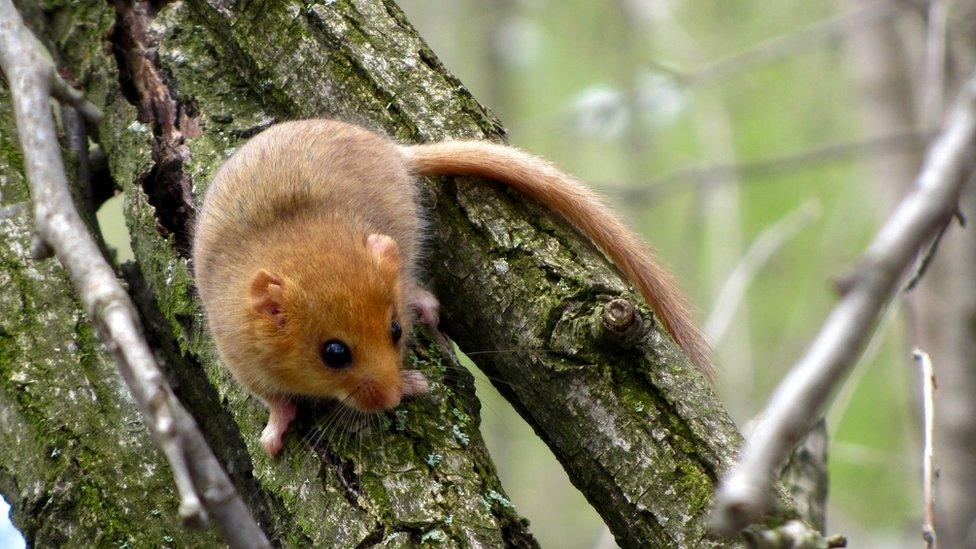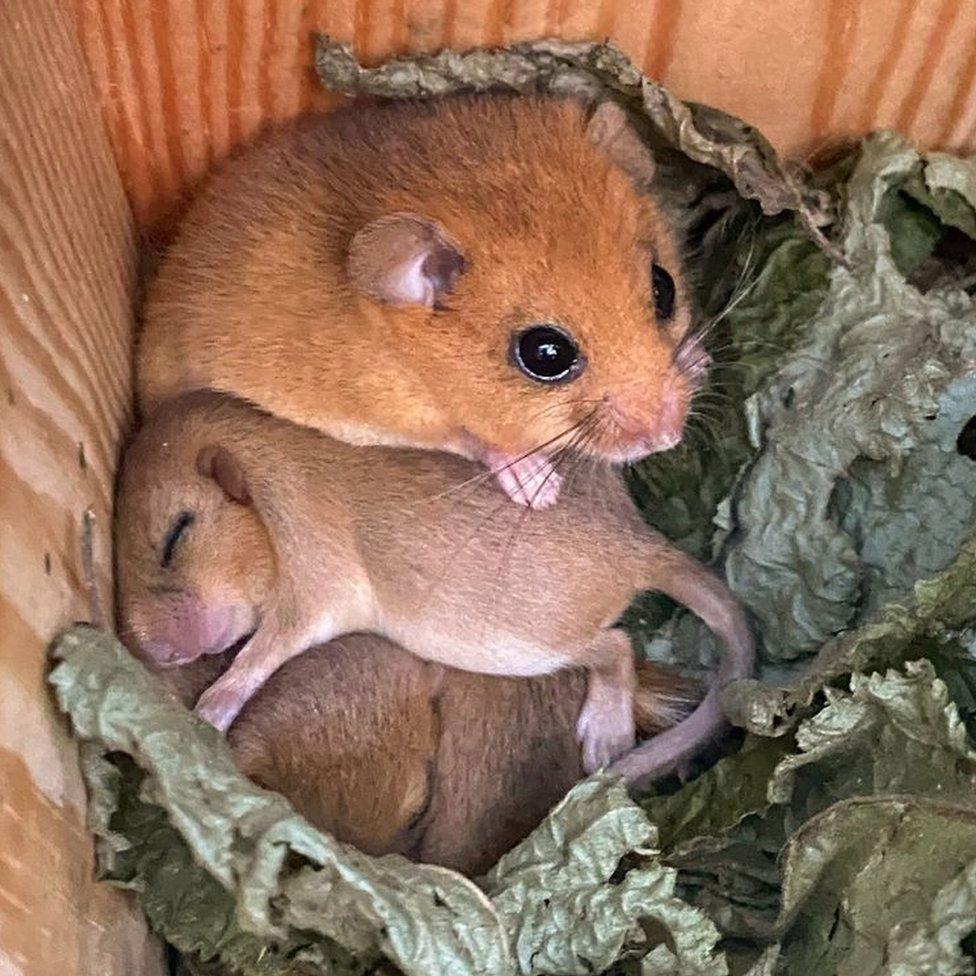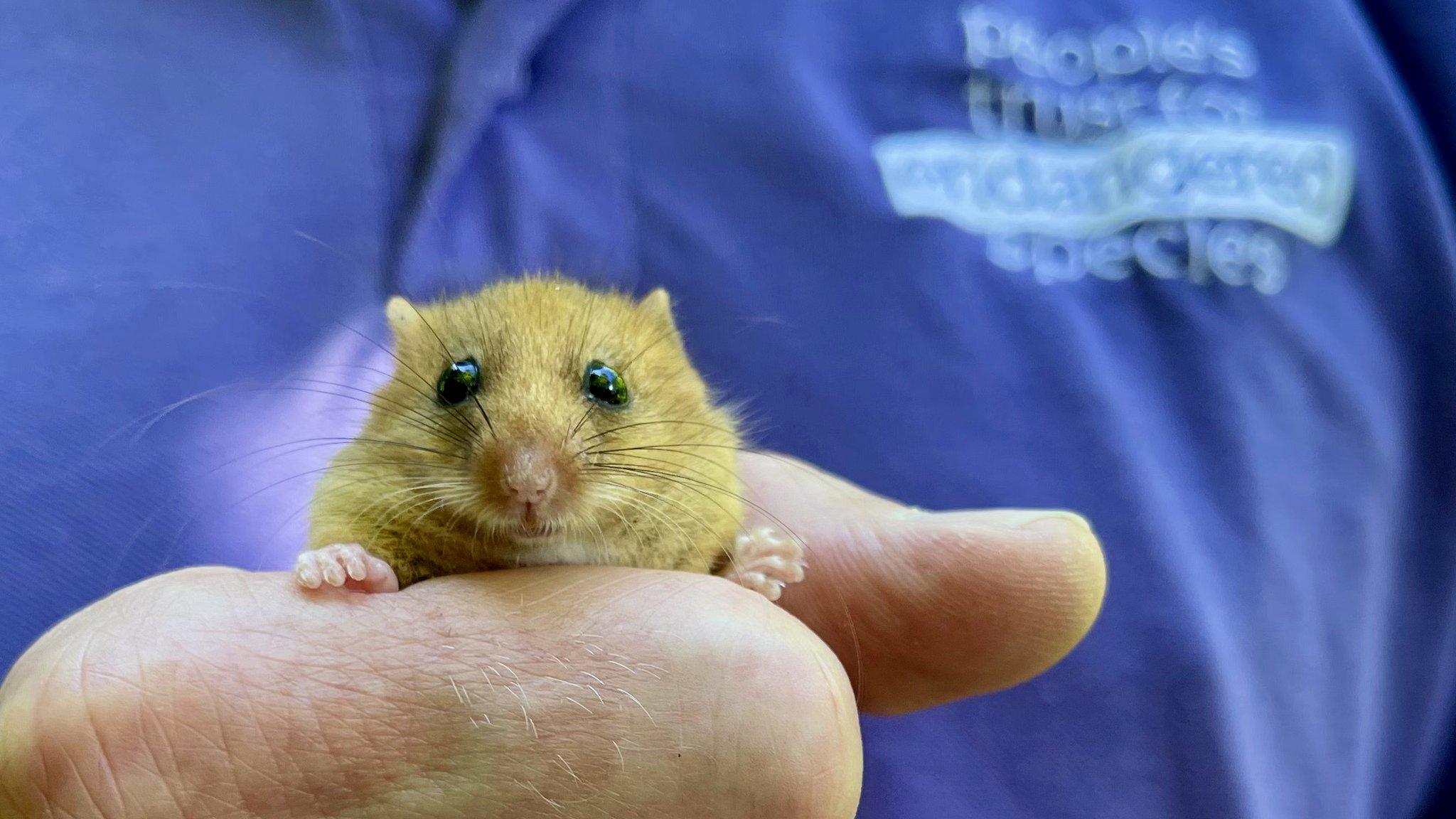Rare hazel dormice to be reintroduced into National Forest
- Published

The native species has seen a 51% decline nationally since 2000
Rare hazel dormice are due to be reintroduced into the National Forest in a bid to boost their declining population.
The 38 dormice are due to be released into woodland near Calke Abbey, a National Trust property near Ticknall, Derbyshire.
The native species, which is extinct in the area, has seen a 51% decline nationally since 2000, a charity said.

Over 1,000 dormice have been reintroduced to 25 different woodlands in the last 30 years
The National Trust said it was thrilled the woodland would now include dormice.
The dormice are to be introduced by wildlife charity People's Trust for Endangered Species (PTES), which worked on the project along with the trust and other partners.
PTES said the numbers of hazel dormice had plummeted in recent years due to habitat loss and fragmentation, and climate change.
PTES' State of Britain's Dormice 2019 report said the population had declined 51% since 2000 and were considered extinct in 17 English counties.
Forage and nest
The charity said it and its partners release healthy, captive bred dormice every year into well-managed woodlands across the country to try to combat this decline, as part of Natural England's Species Recovery Programme.
Since the programme began in 1993, 1,078 dormice have been reintroduced to 25 different woodlands in 13 counties.
Ian White, dormouse officer at PTES, said: "The ongoing success of our annual dormouse reintroductions is the result of a unique partnership.
"Well-managed woodlands and hedgerows are key to restoring dormouse populations across the UK.
"The National Forest is home to a huge array of woodlands suitable for dormice, so we hope that this is the first of many reintroductions to take place in this part of the country."
Jon Lewney, countryside manager for the National Trust, said: "The National Trust has been custodian of this ancient woodland since 1985, and over that time we've sympathetically managed the landscape so that it supports an array of native wildlife, which we're thrilled will now include hazel dormice.
"This diverse woodland, which is home to oak, hazel and honeysuckle, will provide lots of secure places for them to forage and nest."

Follow BBC East Midlands on Facebook, external, on Twitter, external, or on Instagram, external. Send your story ideas to eastmidsnews@bbc.co.uk, external.
- Published17 June 2021
